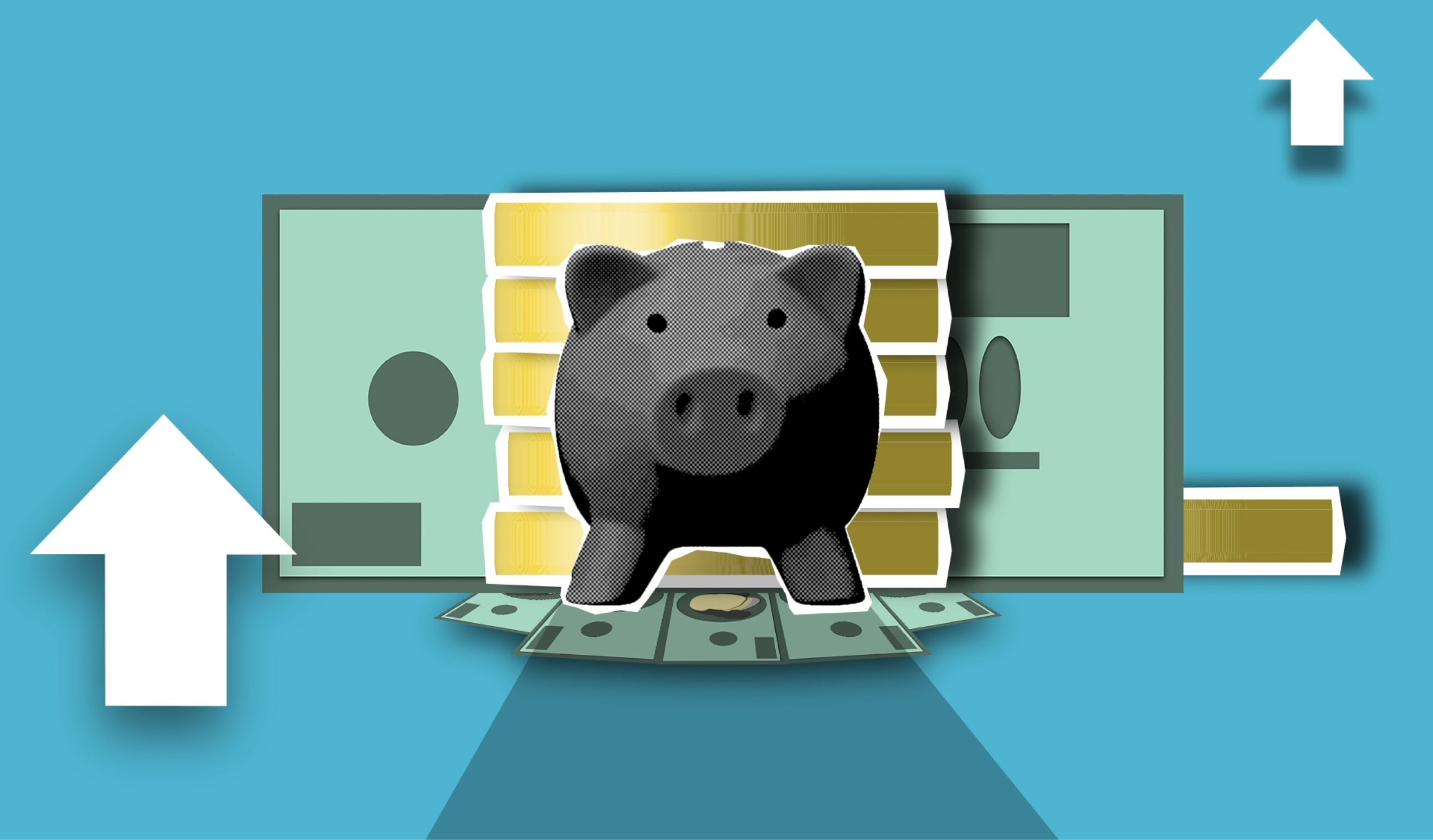With the increasing cost of living, it’s more important than ever to know the best ways to save money in 2023. We’re here to help become a savvy saver this year with our ranked list of ways to save money and reach your financial goals.
How to Save Money Contents
Pay Yourself First (Automate Your Savings)
If you’re just starting out, we recommend using an instant-access savings account. This is just in case you have underestimated your outgoings or if you have an unexpected bill. We’d always recommend having an emergency fund of at least 3 to 6 months of your outgoings. This is to cover you in case you lose your job or need to pay off a large bill.
Set Yourself A Goal and Budget
“To be able to successfully save more money, you need to be able to measure your success” – Saveezy
Set aside an hour one evening to deep dive into your expenses. To start, we recommend pulling up your 3 most recent bank statements and filling a spreadsheet with your reoccurring expenses. If you have any one-off expenses, categorise these (e.g. eating out, clothes, transport) and add them to your expenses. Once you have your list of outgoings, categorise these as needs (unavoidable bills) or wants (leisure activities). You should also add up your earnings for each month.
Now you know your 3-month average incomings and outgoings, you can set a percentage savings goal. A common technique is the 50/30/20 rule where 50% of your earnings go towards your needs, 30% goes towards your wants and the remaining 20% is saved each month. Find what works for you and make adjustments each month to find the right balance.
Use A High-Interest Savings Account
Be sure to read the fine print as some banks will only give you a higher interest rate if you make no withdrawals with a fixed term and don’t exceed a certain disposit limit.
Negotiate Your Bills or Switch Provider
– Knowing the best deal on the market
– Getting through to the ‘retentions team’ where they have access to loyal customer offers.
– Being polite and friendly
– Knowing what you want from the supplier (cost/performance)
– Asking for more (you don’t ask, you don’t get)
– Using the phrase “I’ll need to confirm with my [insert relationship here]” if you need to hang up to think about it.
Make use of comparison websites like Compare the Market, Confused.com and Go Compare to see where you can make any savings.
Buy From Auction
John Pye has many auction houses around the UK which you can visit, but you’re also able to bid online and have the items shipped to your home. They sell a mixture of items including electronics, furniture, fashion goods, cars and even houses. The auction items come from a variety of places such as unwanted customer returns, police seizures and business insolvencies. It’s a great way to grab a bargain or even make money by buying items in bulk and selling the excess to make a profit. It’s important to know John Pye will charge a 25% service fee, 20% VAT and potentially a shipping fee, so get your numbers right before bidding.
Let Someone Negotiate Your Bills
Companies like Look After My Bills, Switchd and USwitch are great places to start.
Use 0% Balance Transfer
Make sure to read the fine print and understand the costs associated with each balance transfer card provider. You can find a great comparison of providers on Moneyfacts Compare.
Earn Cashback When You Shop
Get a Free Overdraft
It’s important not to be reliant on an overdraft and to pay it off before the fixed term states or you may have to pay interest on the loan.
Use Coupons and Vouchers
It’s always a good idea to sign up for a website’s newsletter before making a medium-large purchase. In most cases, a company will send you a series of marketing emails with increasing levels of discounts. An example of this may be as followed:
– 1 day after signing up for the newsletter: “Here’s our best deals…”
– 3 days after signing up for the newsletter: “We’re giving you 10% off…”
– 5 days after signing up for the newsletter: “Last chance! 20% off today!”
We can’t guarantee this will be the case, but if you’re happy to wait, they’ll soon send you an offer.
Improve Your Credit Score
It’s important to check your credit score regularly and take any recommendations provided to improve your score. You can use websites such as Experian, Equifax, Credit Karma, and ClearScrore to receive a credit report and understand ways to improve your score.
There may be mistakes in your report or fraudulent activity of which you may be unaware, it’s super important to report these and so you can clear them from your credit report immediately.
Good credit score practices include:
– Paying your bills on time.
– Not opening many credit accounts in a short period of time.
– Being on the electoral roll (signing up to vote).
– Having your address up to date.
– Not being linked with someone else on a loan product (they might wreck your score!).
– Reducing the number of ‘hard search’ credit applications.
– Having at least some credit history.
– Limit payday loans
Pay off Debt
We like the debt snowball method which is a simple and motivating way to start writing off your loans one by one.
1. List all of your outstanding debts from smallest to largest
2. Pay the minimum repayments on all your debts except for the smallest loan amount.
3. Increase the repayments to your maximum on your smallest loan.
4. Once it’s paid off, repeat the process on your next smallest loan amount.
Cancel Underutilised Subscriptions
If you haven’t used it this month, ditch it. If you find you want to go back, they’ll be more than happy to have you. See if you can survive a month without the subscription and you’ll thank yourself later with a holiday’s worth of savings.
Ditch the Brands
Reduce Your Energy Costs
As a minimum, we can all:
– Make sure to always turn off unused lights
– Have a programmed thermostat
– Only run fully filled appliances
– Unplug devices which may be drawing unnecessary power
– Lower your hot water and radiator temperature (approximately 60 degrees celsius)
– Draftproof your doors
Cook At Home
It’s a hard shift if you’re not used to cooking, but we’d recommend mastering one or two of your favourite recipes and then you can explore by changing up a few core ingredients. You’ll soon find that a lot of cuisines have the same core techniques which you can adapt for yourself for you can make meals quickly and cheaply with whatever you have lying around.
Become a DIY’er
We recommend starting small, borrowing some tools and having someone with a little experience over to help with your first few projects. It’s also a great idea to get at least 3 quotes from professionals so you know how much it might cost (if you can’t do it) and you also get a feel for how a pro would tackle the job (free guidance!)
Reduce Your Grocery Costs
We currently love using ASDA due to their affordable own branded range as well as their recipe section where you can pick a meal and all the ingredients are automatically added to your basket.
How to Save Money: Start Now!
We hope you enjoyed reading this list as much as we did making it! Saving money is all about slowly building up habits to be more money mindful and implementing small improvements over time. Once you’ve become aware of where you need to make the changes, you’ll start to automatically make the changes without thinking about it.
It’s usually very taunting to start but we also recommend first figuring out where you stand right now. Start to measure and monitor your spending and you’ll become aware of your current habits and where you might be able to create improvements.
If you’re interested in building more streams of income, try our 23 Ways to Make Money.


Leave a Reply